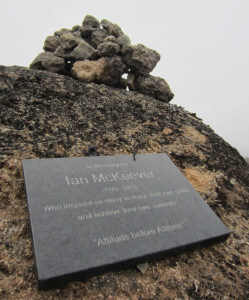This is part six of our series where we share Heartwood’s founding principles. The first in the series, Building the Business vs. Making the Quarter, and more can be found here.
“May your choices reflect your hopes, not your fears.”
– Nelson Mandela
 Having happy workers is very important to us at Heartwood. So important, in fact, that we’ve built it in to our screening and review process!
Having happy workers is very important to us at Heartwood. So important, in fact, that we’ve built it in to our screening and review process!
But labeling the concept as “having happy workers” oversimplifies it, really. The end goal of our efforts is to nurture an environment of persistent optimism. A culture where one feels actual joy coming in to the office. And as unattainable as that may seem, I feel confident when I say that we’ve made this culture a reality at Heartwood.
How?
Whether we are attempting a new feature for the first time, or up against a tight deadline, the approach going in is an assumption of success of some sort (without being over-confident). As you may have read before, even failure, defined properly, can be enlightening.
The Optimist and the Cautious may arguably reach the same point, but we believe the former will be an inherently different person when they do. It’s not just how far you go, but also who you become along the way.
Let’s get a bit granular now and share the three rules we’ve implemented when hiring team members, choosing vendors or acquiring customers – rules that make Heartwood a place that practically manufactures optimism:
1. Attitude before Altitude – While climbing Kilimanjaro, I came across this memorial to one of world’s best climbers:
 Ian McKeever held the world record for the fastest completion of the Seven Summits challenge (the highest mountains of each of the seven continents). He was known for not attempting to climb with anyone who drained the group’s energy, no matter how gifted a climber. Similarly, we have a – ‘no whiner or downer’ rule, without exception. No matter how skilled a person is, if he or she will drag the team’s spirit down, the skillset they offer would not be worth the psychological disruption to the team.
Ian McKeever held the world record for the fastest completion of the Seven Summits challenge (the highest mountains of each of the seven continents). He was known for not attempting to climb with anyone who drained the group’s energy, no matter how gifted a climber. Similarly, we have a – ‘no whiner or downer’ rule, without exception. No matter how skilled a person is, if he or she will drag the team’s spirit down, the skillset they offer would not be worth the psychological disruption to the team.
2. Anyone who touches the company MUST stay happy and if not, MUST leave happy – and this applies to employees, vendors and even customers.
There are various reasons why some working relationships just aren’t a good match. And when negativity creeps in, it can feel like there’s an invisible doomsday clock counting down to the inevitable – and often equally negative – end to the relationship.
But not at Heartwood. We decided long ago to end all engagements on a positive note. It’s easy to pull out the negatives, but even breakups can be optimistic. Here’s how:
When we know the end is near, we look back and pull out all the good things that have transpired during the relationship – and that’s ALL we focus on when we have that final conversation. We share why the relationship is ending, of course, but then we thank them for everything positive they’ve done for us, sharing our gratitude for these very specific achievements they made possible.
3. No Vampires (Seth Godin) or Bozos (Guy Kawasaki)
“Impossible isn’t something that can’t be done. It’s just something that hasn’t been done before.”
Vampires are negative people and Bozos are the naysayers – and neither has a place at your organization. I’m not talking about people voicing concerns about various issues – that’s valuable as well, of course. I’m talking about those who do so consistently – and about everything. People who play Devil’s advocate a bit too aggressively and enjoy the discord they create. Let them enjoy that elsewhere.
Is your workplace optimistic? If not, it might be time to change that!
And be sure to check out the results we’re able to offer, thanks to Heartwood’s encouraging atmosphere.


